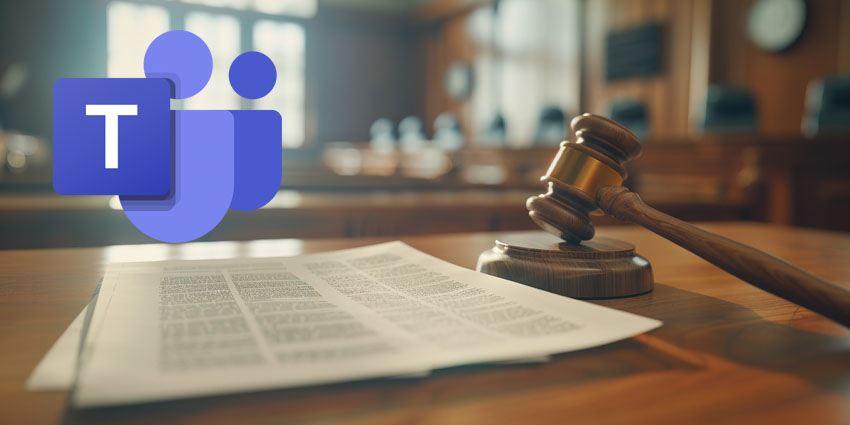The evolution of the digital communications landscape has delivered benefits to both organizations and individuals alike. Customers now have more ways to connect with companies, and access support on the channels they feel deliver the right combination of speed and convenience.
Employees can leverage a range of innovative tools for sharing ideas and information in real-time, without the need for endless in-person meetings, one-on-one discussions, and paperwork.
However, the exponential growth of communication channels, and the data stored within them, also leads to challenges. Today’s regulatory guidelines in virtually every industry hold companies to strict standards for collecting, storing, and safeguarding data across every channel.
This means companies need to take a new approach to data governance, developing a robust digital communications governance (DGC) strategy, that encompasses their entire ecosystem.
What is Digital Communications Governance?
Gartner’s market guide for Digital Communications Governance defines DGC as a strategy that involves leveraging solutions for monitoring and enforcing regulatory and corporate compliance standards holistically across all communication channels.
Digital Communications Governance solutions enable the consistent management and enforcement of governance policies, and provide access to critical reporting capabilities for data retention, surveillance, behavioral analytics, auditing, e-discovery, and supervision.
Notably, leading DGC solutions need to support every primary digital communication channel, from Microsoft Teams, to messaging apps like WhatsApp. They also need to empower companies to classify, and categorize captured content, enabling consistent compliance with regulatory standards.
Why Digital Communications Governance is Important?
Ultimately, as the communication landscape continues to evolve, compliance challenges are growing more complex. Today’s organizations face a growing number of regulatory rules, from FINRA and HIPAA, to GDPR, and FCA guideline, alongside corporate governance guidelines.
The expanding number of digital communication channels, accelerated by employee and customer demands, means companies need a new approach to ensure they’re capturing data correctly, and protecting themselves from significant regulatory fines. Failing to manage data correctly, even on a single platform like WhatsApp, can lead to huge repercussions.
In the financial industry, more than $1.1 billion in fines have been charged to industry-leading titans, due to a lack of WhatsApp messaging governance.
A robust approach to DGC ensures companies can:
- Optimize data security: Protecting personal information shared in communication data is more important than ever. Companies need to ensure they’re protecting themselves against breaches and leaks that could lead to lost revenue, and fines.
- Avoid fines and penalties: Most countries and industries have laws regulating how communications data is managed and used. A full DCG strategy ensures companies can adhere to those laws, reducing their risk of significant penalties.
- Risk mitigation: A well-structured governance framework ensures companies have a clear trail of communication data for audits and to support their case in litigation cases. Monitoring and surveillance solutions can even help proactively reduce risks.
- Build effective policies: DGC software offers companies access to customizable policy templates that align with their organizational standards. It can also offer an insight into when these policies are violated, and help with the development of training and supervisory initiatives.
- Preserve a strong reputation: Demonstrating a clear commitment to abiding by regulatory laws and guidelines can help to build trust with clients. Customers want to see consistent evidence that their data is being protected, in every industry.
How Can Companies Master Digital Communications Governance?
While the advantages and importance of digital communications governance are clear, implementing a comprehensive strategy can be complex. Today’s companies face a range of challenges with the variety and volume of data they need to manage across multiple channels. As technology, communication preferences, and guidelines evolve, the challenges facing organizations will grow.
To mitigate risks and ensure success, companies need to take a multi-faceted approach.
Step 1: Assessing the Communication Data Landscape
The first step in implementing a strong DGC strategy is understanding what kind of communication data you collect across multiple channels. You’ll need to assess all of the communication platforms you use, from Microsoft Teams, to SMS and WhatsApp.
Plus, you’ll need to categorize that data based on its sensitivity and importance. Leveraging data flow mapping techniques can help you understand how data moves from one landscape to another, and how it’s currently stored and archived.
Step 2: Implementing Access Controls
In digital communications data governance, accountability is crucial. Companies need to understand who in their team is responsible for different forms of data, and which steps they’re responsible for taking to ensure that data is protected.
Defining points of data ownership and accountability will help organizations implement access controls that limit who can modify and access communications data. Using your DCG solutions, you can implement role-based access controls, leverage encryption strategies, and even implement strong authentication methods to verify users.
Step 3: Defining Data Retention Policies
Next, business leaders need to determine how they’ll store and manage their data. Clear data retention policies are crucial for ensuring you adhere to regulatory guidelines, while avoiding issues like data sprawl and clutter. Define how long each forms of communication data should be kept, and develop automated workflows to ensure that data is deleted when necessary.
Once you’ve identified the right data retention policies and strategies, educate, and train your team. Ensure your employees understand how and where they need to store data, how long information should be preserved, and what they need to do to protect your company against data breaches.
Step 4: Leverage a Complete DCG Solution
Innovative technology solutions for Digital Communication Governance empower companies with the resources they need to effectively store and manage data across multiple channels.
The key to success is choosing an all-in-one platform that supports:
- Comprehensive data capture: End-to-end data capturing solutions for unified communication tools, third-party messaging apps, and various other clients.
- Intelligent automation: Automated solutions for compliance risk management, such as device link/unlink management, and real-time monitoring and surveillance tools.
- Data classification tools: Comprehensive systems that can leverage AI to assist in categorizing communication data based on its sensitivity level.
- Flexible integrations: Built-in connectors for archiving, surveillance, and CRM systems, as well as official API solutions and workflow development systems.
- Built-in security: Comprehensive solutions for security, such as single sign-on, end-to-end encryption, and account or access control management.
- Intelligent reporting: A range of AI-powered tools for content summarization, authorship detection, metric tracking, and risk monitoring.
Some companies, like LeapXpert can even support companies with various services such as custom training and onboarding, to maximize the value of their technology.
Step 5: Plan for Long-Term Success
Finally, as communication channels and regulatory guidelines continue to evolve, it’s important to take an agile and dynamic approach to Digital Communications Governance. Make sure you have a plan in place for dealing with incidents, whenever they might occur.
Use the insights you gather from your DCG platform to regularly review the effectiveness of your strategy, and make improvements as needed. You can even ask your employees to offer feedback on the functionality and outcomes of the framework.
Build an Effective DCG Framework
A robust approach to Digital Communications Governance is now essential in every industry. Companies need to ensure they’re complying with industry regulations, with a comprehensive approach to monitoring and safeguarding data on every channel.
Solutions like LeapXpert’s governance platform can help, offering access to comprehensive cross-channel monitoring and data capture, customizable retention policies, automation, and AI insights. With this all-in-one platform, you can leverage the benefits of an evolving number of communication tools, without compromising on compliance.







